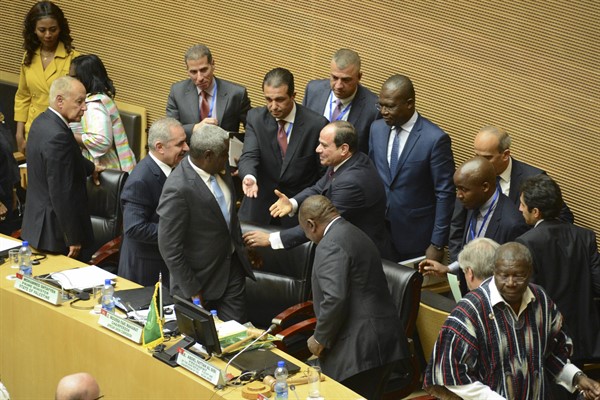Last weekend, the African Union hosted two summits in Malabo, Equatorial Guinea, aimed at tackling Africa’s humanitarian and political crises. The events were scheduled ahead of the 20th anniversary of the continental bloc’s establishment in July. The first, held on Friday, May 27, was a humanitarian summit and pledging conference examining the root causes of the continent’s humanitarian crises, while the other, on May 28, was centered on terrorism and unconstitutional changes of government as drivers of instability. The gatherings sought to identify long-lasting solutions to the many humanitarian and political challenges across the continent, with special emphasis on financing, post-conflict recovery, development cooperation and peacebuilding.
The twin dilemmas of humanitarian and political crises have been exacerbated by the coronavirus pandemic and Russia’s invasion of Ukraine, both of which have of course had far-reaching effects globally, and continue to take a toll in African countries. As such, the two conferences, which also kicked off celebrations of the 20th anniversary of the African Union, also helped member states take stock of the existing and emerging problems now confronting Africa, as they reorient the AU to better suit a rapidly evolving geopolitical environment.
The humanitarian summit, the first of its kind since the AU’s creation, gathered African leaders and donors, as well as United Nations representatives including Martin Griffiths, the under-secretary-general for humanitarian affairs and emergency relief coordinator, to address climate- and conflict-related challenges. According to Moussa Faki Mahamat, the AU Commission’s chairperson, 113 million Africans need urgent humanitarian assistance this year, including 48 million refugees, asylum-seekers and internally displaced people. The U.N. has warned that Africa faces multiple humanitarian crises, ranging from a food emergency in the Sahel and West Africa to the worst drought in decades in the Horn of Africa. And for the first time ever, African countries took up all 10 slots on the Norwegian Refugee Council’s list of “most neglected crises,” with the Democratic Republic of Congo topping the list for the second consecutive year.

